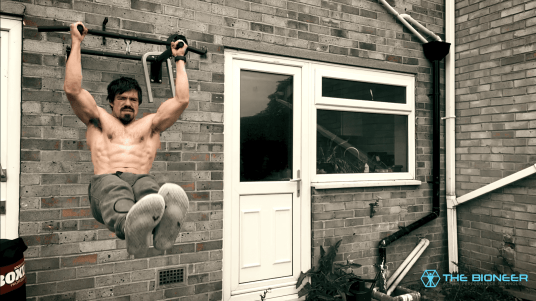- Guts Workout: Train Like GUTS From Berserk
- Fitness and Mental Health – How it Helps and How it Goes Bad
- Kettlebells Transform Your Body Unlike ANYTHING Else – Huge Benefits Explained
- How Sitting, Stress, and Clothes Destroy Our Bodies
- Why Steroids Are NOT Functional – Don’t Trade Your Health for Muscle
- How to Keep Leveling Up INFINITELY – Like Sung Jin-Woo
- The Ideal Physique is Easy for Most Guys When They Learn This – Toji Workout
- How to Train Your FOOT Muscles for Balance, Power, & Injury Prevention
- How to Do Sit Ups CORRECTLY for Ripped, Powerful Abs
- How to Train Your Nervous System Like a NINJA
Training to be “Faster, Stronger, Smarter” Makes Sense for Most People
When it comes to training, I don’t understand the urge people have to be the best at one thing.
If you are a professional athlete, then I fully understand that sprinting/lifting weights/swimming/diving or another sport is your career and your passion. You have a genuine shot at being the very best in the world and therefore, all of your efforts and goals should be focussed on that one thing.
But for everyone else, if the goal of training is to improve quality of life and physical and mental performance, hyper-specialization doesn’t make any sense. At least not to me.

You tend to see this most often with weightlifting. People obsess over their bench press, deadlift, and squat 1-rep maxes. They push themselves harder and harder, further and further. Why? So that they can be “the best at their gym.” Or “the best on an online forum.”
Meanwhile, they might completely ignore their mobility, their ability to focus for long periods, their ability to move pain-free, and strength endurance. They even forget other aspects of strength, such as rotational strength, or straight-arm strength.
There comes a certain point where you see diminishing returns.
There comes a certain point where you see diminishing returns. Being able to bench press a lot of weight will have direct benefits in your daily life (or at least the adaptations this demands will be advantageous), and give you a sense of accomplishment. But does being able to bench 150kg instead of 140kg offer any major benefit?
Is it worth the time and effort you’ll put in to get there? The significant risk of injury?
Of course, it’s not just self-proclaimed weight lifters who often fall foul of this. Calisthenics athletes will often obsess over the next skill, without thinking about endurance.

Many other people will simply pick a sport and focus on that. Be it dance, be it parkour, be it marathon running, or be it soccer.
I’m not saying you shouldn’t aim to get better. You should always strive to be better! If you can lift 140kg then absolutely you should aim for that 150.
But personally, I don’t want to make that my only goal. I don’t want to chase that at the expense of all other things.
I’d rather be stronger than 90% of people and faster than 90% of people
I’d rather be stronger than 90% of people and faster than 90% of people, rather than stronger than 94% of people and slower than 50.
As for why so few people even consider training their brains as well as their bodies… that’s an even bigger mystery to me.

That kind of training will make us more proficient in more sports and skills. It will make us more formidable in a fight. It will provide us with more varied and versatile abilities. It will give us more OPTIONS in any situation.
And the sheer process of personal growth will be endlessly rewarding, varied, challenging, and exciting.
Imagine what it would feel like to be stronger, more energetic, smarter, more focussed, more mobile, more alert, more resilient, more creative, more agile, more knowledgeable… all at once.
If you train to become a better version of yourself, to supplement your general performance, and to complement your lifestyle… then surely it makes sense to bring every facet of your physical and mental performance up to the highest possible level in the given time?
Imagine what it would feel like to be stronger, more energetic, smarter, more focussed, more mobile, more alert, more resilient, more creative, more agile, more knowledgeable… all at once.
Surely that’s what training should mean to the vast majority of the population?







